About the Organic Orchard Management Laboratory
The TTDARES orchard in Binlang covers an area of 26.8 hectares. Originally established for the conservation of water and soil on sloped land, the Slope Orchard Management Laboratory began its transition to organic farming in 2010 to more actively and efficiently conduct organic farming technique research and promotion. The following year, it became part of the Organic Agriculture Research Task Force to conduct R&D various kinds of organic cultivation and production techniques for fruit trees. In 2013, the orchards there, originally managed through conventional farming methodology, transitioned to organic, becoming a shining example of organic fruit tree cultivation.
On January 1, 2014, the TTDARES changed the Slope Orchard Management Laboratory to the Organic Orchard Management Laboratory, since which the research team at the lab has worked on research, promotion, and guidance for various techniques in the management of “six-sector industrialization” (an integration of primary, secondary, and tertiary industries/sectors) for organic orchards.
- Main tasks
- Research on organic cultivation techniques for fruit trees.
- Research on biodiversity for organic orchards (ecosystem services).
- Research on techniques for diversified utilization of organic fruit.
- Research on ecofriendly pest-prevention techniques.
- Guidance and promotion for organic orchard management and demonstration.
- Emerging fruit variety germplasm collection and cultivation.
- Current research
- Research on organic Annona cultivation techniques: Includes R&D, guidance, and promotion regarding the management and techniques for handling groundcover (weeds), fertilization, pests, and disease as well as ensuring steady fruit yields and quality.
- Establishment of an ecofriendly pest prevention system for organic orchards: Includes R&D, demonstration, guidance, and promotion of techniques regarding ecofriendly control of wild animals, disease, pests, and weeds.
- Surveys on ecofriendly agricultural methodology ecosystem service functions and beneficial species: Includes surveys on Hippasa holmerae (lawn wolf spiders) in organic navel orange orchards and different species of groundcover in organic Annona orchards.
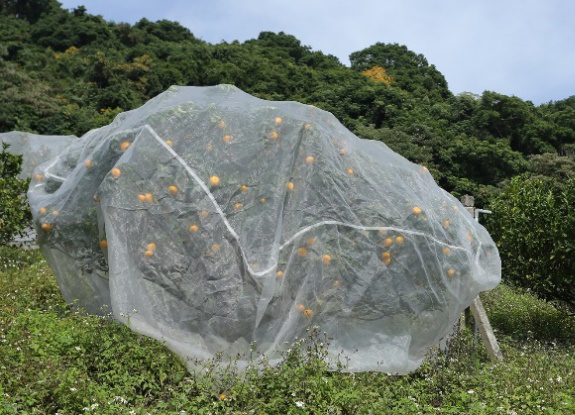 |
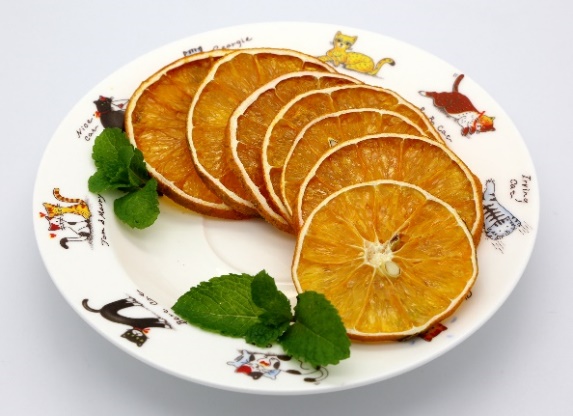 |
| Ecofriendly monkey control for fruit trees. | Organic citrus fruits can be used in many ways, such as being processed into dried fruit. |
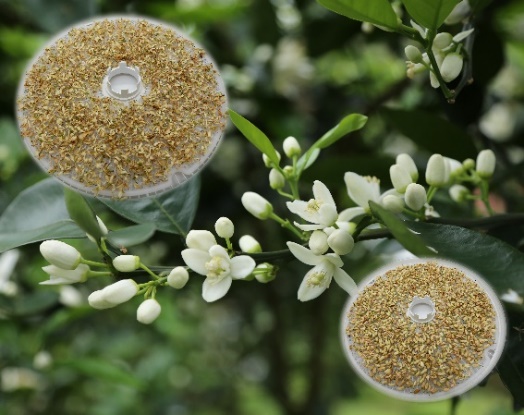 |
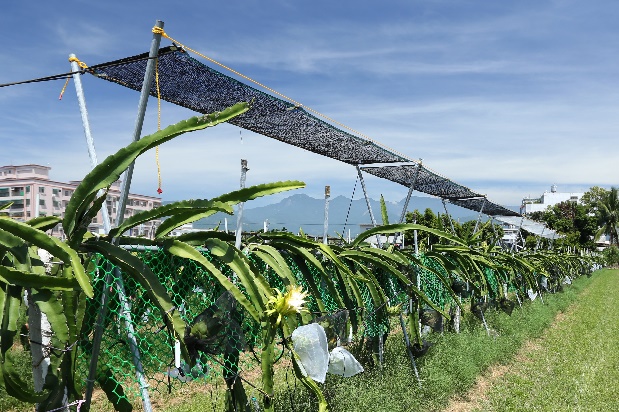 |
| Drying of organic navel orange blossoms. | Protection measures against wind and sunscald for pitaya (dragon fruit). |
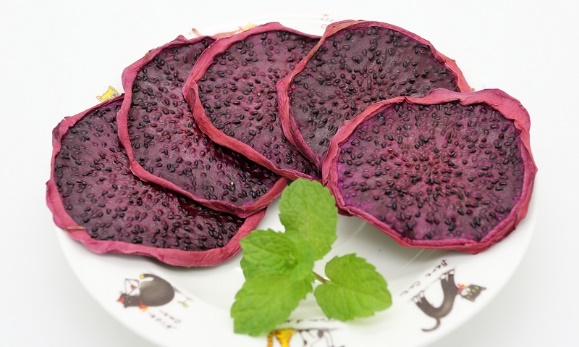 |
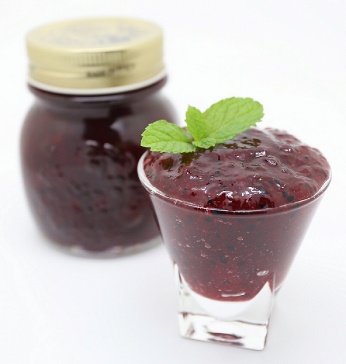 |
| Organic pitaya dried to a crispy texture. | Jelly made from plums. |
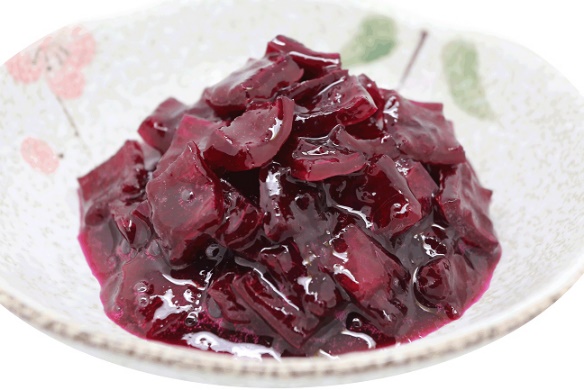 |
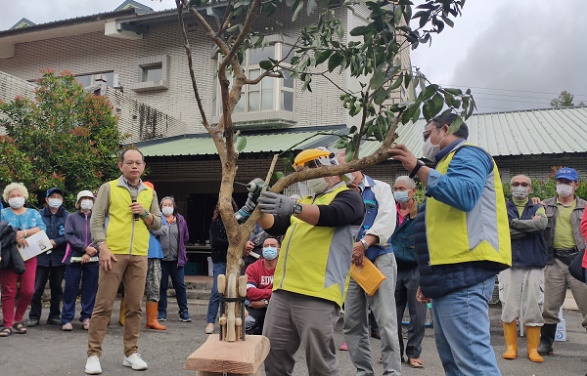 |
| An example of the complete utilization of a pitaya. | The use of compressed air in removing white-spotted longicorn beetles from trees. |
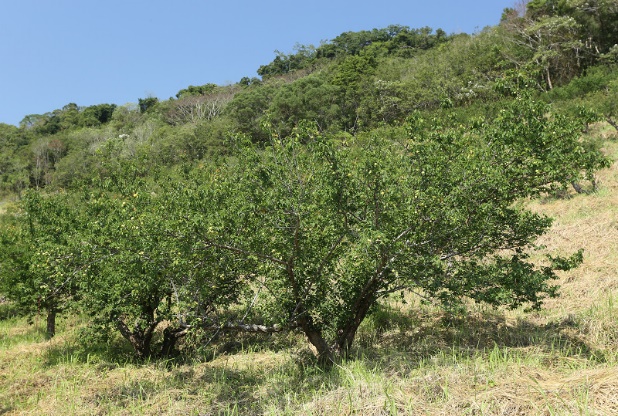 |
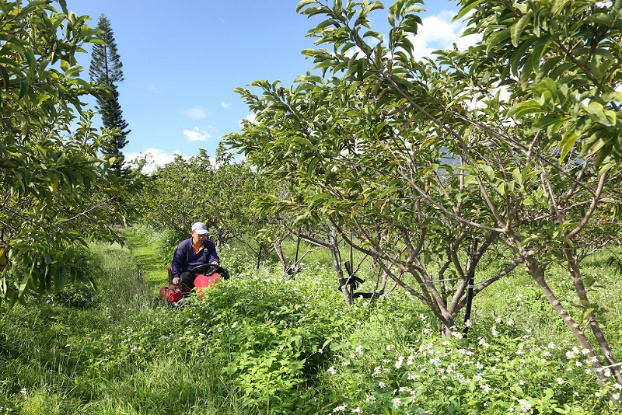 |
| Dwarfing of plum trees via pruning. | Management of groundcover (weeds) in an organic sugar apple orchard. |
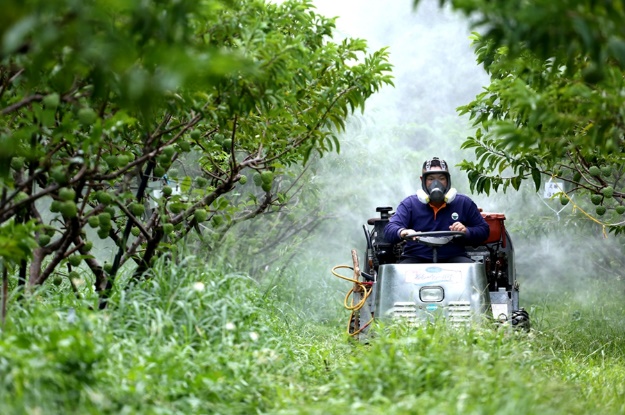 |
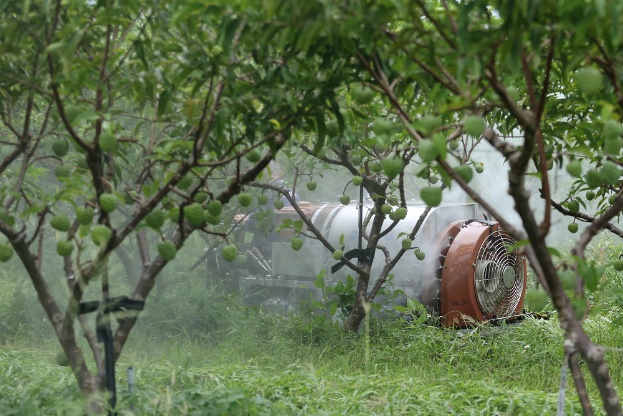 |
| Control of spider mites in an organic sugar apple orchard. | Anthrax prevention in an organic sugar apple orchard. |





